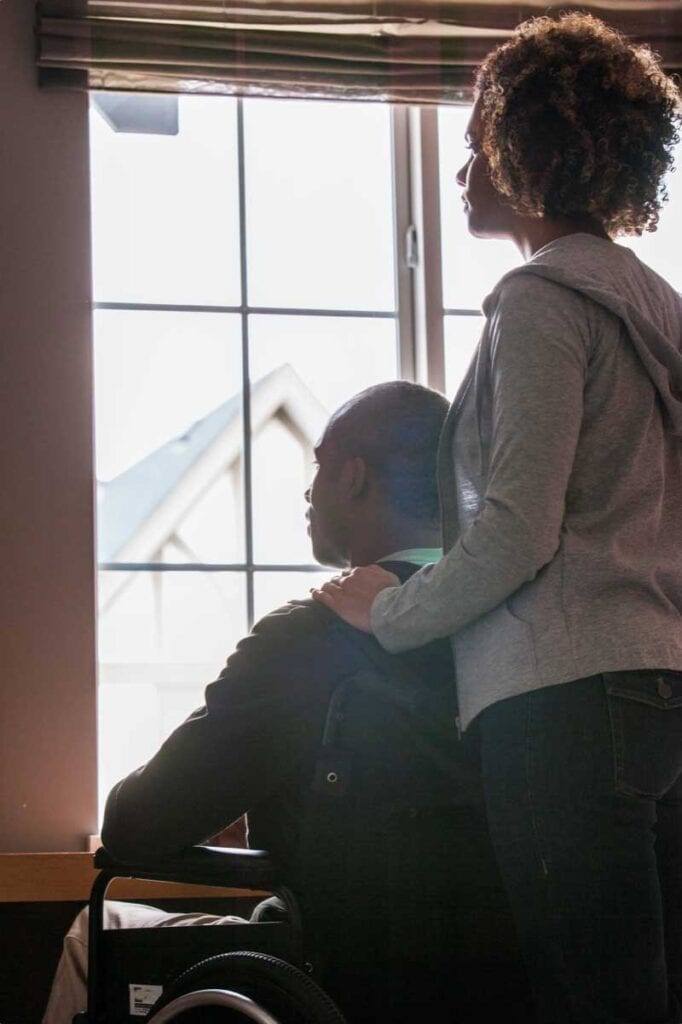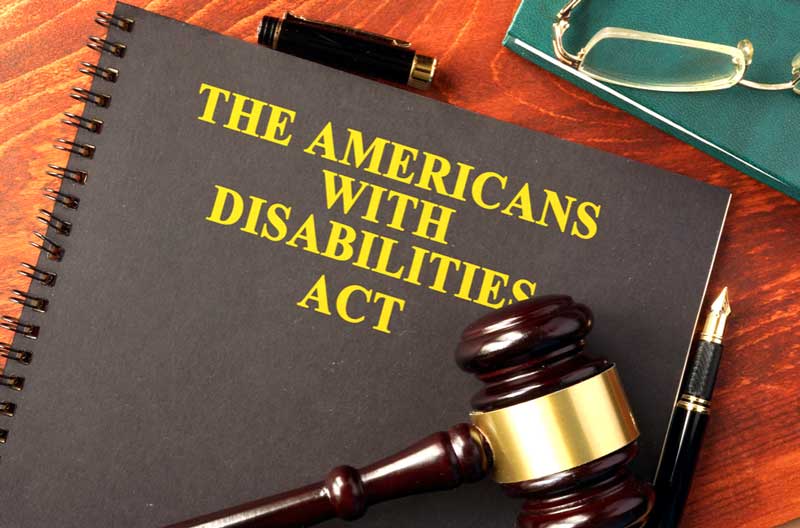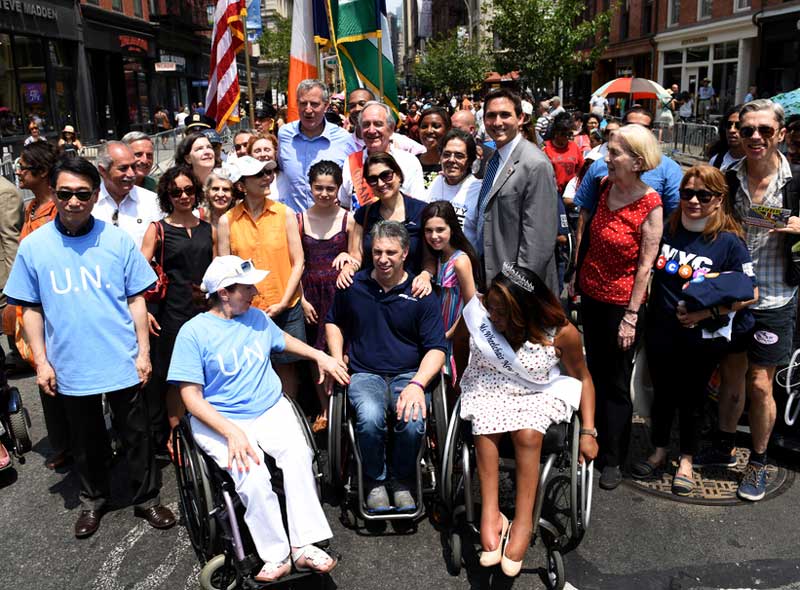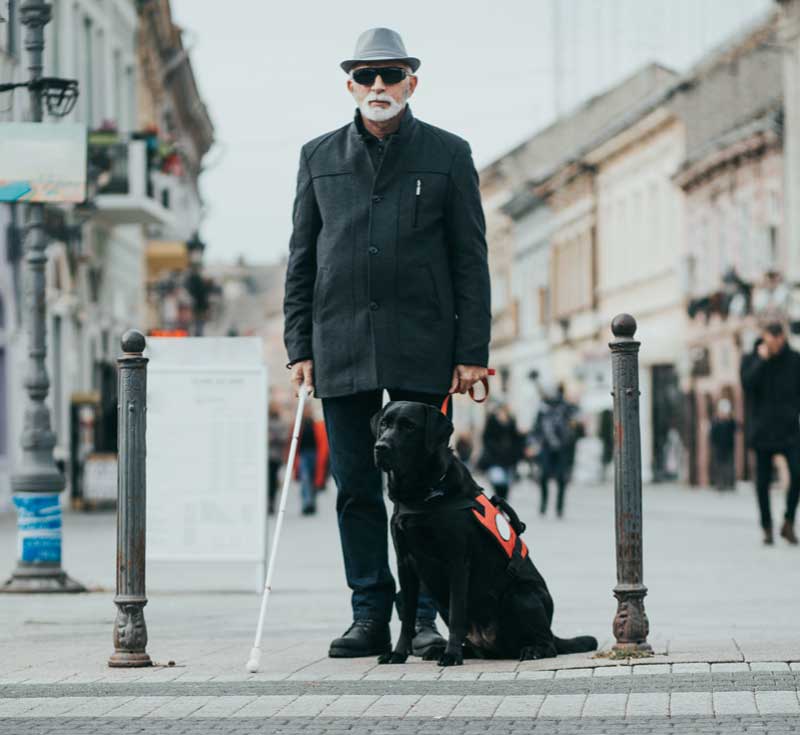Ableism is Discrimination Against Veterans
Discrimination against Veterans is a problem.
Despite the fact that federal laws make this practice illegal in the workplace, discrimination against Veterans simply cannot be eliminated through laws. Make no mistake, there isn’t an undercurrent of anti-Veteran sentiment in America.
Rather the discrimination against Veterans, and especially discrimination against disabled Veterans, is due to an unconscious bias that exists in American society.
This bias exists in part because Veterans are biased themselves.
For Veterans, serving in the military often demands execution while they are sick, injured, and overwhelmed. However, most Veterans don’t see their valuable service as being “worthy” of the benefits they’ve earned.
Many Veterans have the false perspective that disability strictly means debilitating. They think of disability as a narrow set of attributes that they interpret negatively.
Discrimination against disabled Veterans, and by extension discrimination against Veterans, is the result.

If you have ever considered pursuing a VA disability rating and decided against it, you likely are being influenced by this bias.
This bias has a name: ableism
With so many different “isms” in our vocabulary, ableism is not very well known or talked about. According to the Bureau of Labor, nearly 25%, or 4.7 million of all Veterans have a service-connected disability.
Since ableism has the potential to impact nearly a quarter of all Veterans, understanding what it looks like in daily life is key to overcoming it.
Veterans earn the right to healthcare for service-related conditions. And ableism impacts the quality of life for too many Veterans.
Here are several steps to overcome ableism:
1. Recognize ableism in your daily life

Before you can overcome ableism, you have to be able to recognize it.
Discrimination against Veterans in many ways begins with ableism. Ableism can in some respects be the form of discrimination against Veterans that Veterans are most familiar with.
Ableism is the belief that people without disabilities are superior and those with disabilities require fixing. This belief can foster generalizations and misconceptions about anyone with a disability.
For Veterans, the stereotype that PTSD or trauma are negative reflections of one’s character, are common forms of discrimination against Veterans.
Signs of Ableism
There are many different forms of ableism, but here are some examples of what ableism could look like in everyday life:
- Slurs or derogatory comments towards those with a disability
- Talking down to someone, assuming they won’t understand a task or point because of a disability
- Creating events to purposely exclude others with accessibility issues
- Forced segregation of people with disabilities from those without disabilities
- Employers making employment decisions based on disability status (which is also illegal)

The University of Arizona identified several common stereotypes of people with disabilities, which include that they are less intelligent, lazy, and childish just to name a few.
People with typical abilities are not superior to those with disabilities. There is no place for this type of discrimination against Veterans.
However, many of the 4.7 million Veterans with service-connected disabilities deal with ableism everyday. They are faced with the difficult choice of telling others of their condition and trying to overcome these stereotypes or dealing with them silently.
If you are a Veteran with a disability (whether recognized by the VA or not) or have a family member or friend with a disability, there is nothing “less than” about you or your loved one!
2. Understand how ableism impacts Veterans

Many experience the stigma and discrimination against Veterans associated with disability every day.
This could prevent them from talking to people in their lives about their disability, which only adds stress to the Veteran. If you are a Veteran with a disability, know that there are protections that are meant to stop job discrimination against disabled Veterans.
Often false assumptions lead to discrimination against Veterans. For instance, a common stereotype suggests disability keeps Veterans from finding or keeping a job.
In the past, this may have been a more accurate statement. For instance, if you compare Vietnam Veterans statistics from the 80’s to Veterans today, you’ll see that unemployment rates for Veterans with a disability have gone down significantly and pay is protected under the ADA of 1990.

A study of Vietnam Veterans from the late 80’s published in The Journal of Mental Health Policy and Economics showed that Vietnam Veterans suffering from PTSD were 8.5% less likely to be employed.
Additionally, they earned on average, $5.63 less (in 2020 dollars) than Veterans without PTSD. This is empirical evidence of discrimination against disabled Veterans.
Of those 4.7 million Veterans with a service-connected disability in 2019, only 4.8% were unemployed. The other 75% of Veterans with no disability had a similar unemployment rate of 3.7%, which was also the national average in 2019.
The good news is, things are improving and halting some of the discrimination against Veterans.
With the American Disabilities Act signed in 1990, protections were created to help all disabled persons, including Veterans.
The VA’s Veteran Readiness and Employment (VR&E) program can help service-disabled Veterans find and keep a job and live as independently as possible. You can find out more about applying for the VR&E program here.
3. Learn to acknowledge and accept hidden disabilities

Many people with disabilities function at the same level as those without! Some disabilities are visible, while others are not. Hidden disabilities can affect friends, family, or co-workers, and without disclosure they would remain secret.
Hidden disabilities are invisible to others. There is no visible support needed — ie: a cane, wheelchair, sign language, etc. This fact doesn’t make the disability any less relevant.
Often false assumptions lead to discrimination against Veterans and a common stereotype suggests having a disability keeps Veterans from finding or keeping a job.
In the past, this may have been a more accurate statement.
For instance, if you compare Vietnam Veterans statistics from the 80’s to Veterans today, you’ll see that unemployment rates for Veterans with a disability have gone down significantly and pay is protected under the ADA of 1990.
Some examples of hidden disabilities that lead to discrimination against Veterans are:
-
- Other mental health disorders, including anxiety and depression
What’s important to understand with hidden disabilities is to be aware of the fact they exist.
Just because you don’t see the immediate effects of a disability does not mean the person is pretending or the condition isn’t real.
The Gulf War has the lowest rates of PTSD amongst Veterans, at 12%. These rates go up to nearly 20% for Operations Iraqi Freedom and Enduring Freedom. It’s important to realize that many Veterans deal with hidden disabilities, like PTSD, every day.
Accepting these disabilities are real, providing general support and compassion, and being supportive of treatment are just a few ways to help end discrimination against Veterans.
4. Ending discrimination against Veterans by overcoming bias

The best way to overcome bias on both sides of a disability is to dispel rumors by talking about disabilities.
Creating a society of acceptance starts by acknowledging the fact that disabilities exist. Open discussion of disabilities removes many of the myths or misconceptions surrounding them and lessens the risk of discrimination against Veterans.
Talk about disabilities with your family and friends, including children.
Overcoming personal bias towards others with disabilities

- Anyone dealing with a disability is above all, a person. Focusing on the person instead of the disability is one of the first things you can do to overcome your bias towards others.
- Believe others when they tell you about a disability and be open to what they have to say.
- A Veteran with a disability may tell you about special accommodations. Let them tell you, don’t assume you know what someone else needs.
- Don’t speak for someone else with a disability unless they ask you to first.
- Don’t make assumptions about the person based off of their disability, get to know them!
Overcoming bias towards yourself

It’s your choice to disclose a disability to anyone, and under the Americans with Disabilities Act, this includes an employer. This is especially true for those Veterans with hidden disabilities.
Should you decide to tell your employer about your disability, reasonable accommodations can be put in place to keep you productive and working if your disability hinders your ability to work.
In the United States, discrimination against Veterans in the workplace is a crime.
If you decide to disclose your disability here are some tips:
- Have confidence – your disability does not define who you are.
- Focus on your abilities, not your limitations.
- Talking to someone about a disability should not feel like a confession. You are helping others to understand that people with disabilities are just like anyone else.
- Realize that anyone who discriminates against Veterans after they disclose a disability simply misinformed.
5. Have confidence in yourself – you can still be productive with a disability!

If you have a disability you can still be productive in all areas of your life. You can have a successful personal and work life.
Even if you do ask for certain accommodations, most of the time these cost less than $500, or are free for your employer.
Studies also show there is no difference in the productivity between people with disabilities and people without. This may go against “common sense”, but in reality the thought that someone with a disability is less productive is just another stereotype that falls under ableism.
Keeping Veteran workers with disabilities working is cheaper than finding new employees and improves employee morale. Discrimination against Veterans ultimately hurts the entire business in a tangible way.
Veterans are some of the most resilient people in our nation.
We want to take the time to thank you for your service and let you know that you earned the right to seek treatment for your condition!
If you are thinking about filing a claim with the VA, you can learn about initial VA disability claims here.
Join us in overcoming ableism.
About the Author

Trisha Penrod is a former active duty Air Force officer. As an Intelligence Officer, she led teams of analysts to apply advanced analytic skills to identify, assess, and report potential threats to U.S. forces.
Trisha attended the U.S. Air Force Academy and holds an MBA from Webster University. After receiving an honorable discharge in 2018, Trisha worked as a growth marketer and utilizes her analytic skills to help others accomplish their business goals.
